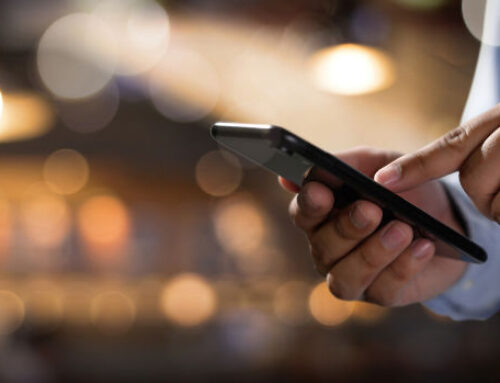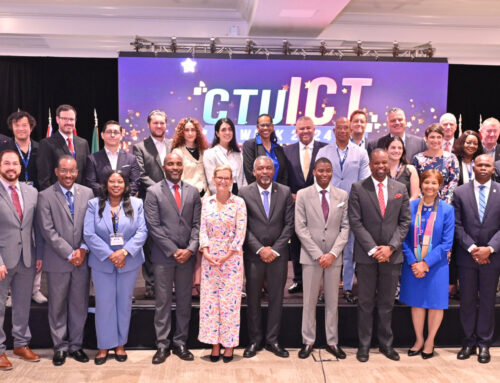Broadband Internet is Now Considered a Basic Human Right
- Developed economies are counting their blessings it did not
- Developing countries’ Leaders and ICT Ministers must think and act NOW about the unconnected 4B in broadband/internet darkness, who are yet to get to 2005
I had a side conversation with one of my sons over the last weekend who, in passing, wondered aloud – “imagine the COVID19 pandemic hit fifteen years ago”.
Fifteen years was quite random to him, but not quite to me.
He is quarantined at home like most in the UK, but still working away seamlessly using 2020 fixed, fixed wireless (FWA), Wi-Fi and mobile networks over which run powerful Over the Top (OTT) video conferencing apps like Zoom, Microsoft Teams, Skype for Business, etc. that combine video, real-time chat and content sharing.
Fifteen years ago was 2005. It got me thinking …
So I reflected on the fact that 2005 was just shortly after the bonanza years of European/world 3G auctions – the UK and German ones netted colossal sums of £22.5B and €38.6B respectfully.
I checked the Regulator Ofcom UK Communications Market Report (CMR) of July 2005, and in it I read:
- “3G mobile telephony is still in its infancy, with 2.5 million subscribers by the end of 2004 out of a UK mobile total of over 60 million – however, none of the big four operators started 3G services until Q4 2004, so true consumer demand for 3G is still hard to ascertain”. Yes, 2.5 million subscribers at the end of 2004 in the UK only.
- It also notes “Voice over IP (VoiP) is making significant inroads into the UK business telephony market, with several large corporate conversions to VoiP announced in 2004”. “There were over 6 million broadband homes in the UK by the end of 2004”.

At the end of 2004, broadband connection was highest in South Korea at 25 homes per 100 population as evidenced from data from Ofcom UK archives, with UK and France at only 10% and 11% respectively. However, what about the then broadband speeds?
Ofcom in 2005 noted: “the term “broadband” is rather nebulous, in that it involves an arbitrary data speed threshold above which the service is deemed to be termed broadband. This speed is generally accepted to be around 128kbit/s… in reality as of May 2005 most broadband ISPs are now making 1Mbit/s connections their basic offer, with 2Mbit/s being a premium product”.
Incredible to read in 2020 – is it not?
It is important to note that these were broadband home connections to mostly PCs, not smartphones. Steve Job’s iPhone did not appear and change the world until two years later in 2007. As noted above even 3G mobile telephony was “still in its infancy”, yet alone 4G/5G being born.
The developed world was in broadband/internet darkness in 2005
What a different developed broadband/internet world we now inhabit in 2020 compared to fifteen years earlier.
So if the COVID19 pandemic had hit in January/February 2005 (instead of Jan/Feb 2020), most of the developed world would have been in broadband/internet darkness: 90% of the UK, 93% of Germany, etc. No Zoom or Teams calls! No internet banking, etc. Imagine that.
Whatever is left of the developed economies in the COVID19 lockdown times runs online or on the internet, whether it is personal and business banking, schooling, retailing, e-commerce, logistics, numerous Internet businesses, the running all sorts of large and SME businesses, etc.
Internet/Online Access is a basic human right
The United Nations has long ago declared the internet/online access to be a basic human right, and even proceeded to further declare deliberate internet disruptions as human right violations.
However, developing economies largely talk the talk about broadband Internet Access, for example:
“We, the Ministers responsible for Information Communication Technologies (ICTs) in our respective countries in Africa, assembled in Cape Town from the 4th-7th of June 2012 for the Inaugural ICT Indaba… hereby declare access to broadband communication as a basic human right in Africa and commit to increasing broadband penetration to approximately 80 per cent of the population by 2020. This common vision draws its basis from the positive impact exerted on economic growth through increasing Accessibility, Affordability and Availability to broadband by all”. (Source)
Really? Nice and cheap talk. Today we are in 2020 with still more than 600M people on the African continent in the dark every night due to lack of electricity. Needless to say Africa is nowhere near 80% Internet connectivity.
Presidents, Prime Ministers & ICT Ministers of Developing Economies must act NOW
Developed economies – though they would prefer to have had no pandemic of course – are counting their blessings it did not hit in 2005. And developing economies have so far (touch wood as they say) been less hit by the pandemic to date in early May 2020.
However, it is time – well indeed past time – when they (i.e. developing economies) reflect on the fact that many of their countries are hardly where the developed world was in 2005 as shown in Figure 1 above in terms of true broadband (2MB/s and above say) connections per 100 people of their populations into their homes, hopefully not 128Kb/s!
It is really no use talking the talk like the Ministers above did in 2012 with no intention of walking the talk, yet alone walking the walk!
They do not have to listen to me… they should to President Barack Obama
“One key to strengthening education, entrepreneurship and innovation in communities… is to harness the full power of the Internet, and that means faster and more widely available broadband. – President Barack Obama, September 21, 2009
The COVID19 pandemic with all its attendant new regulations like “social distancing”, staying in lockdown in our homes, limited international travels, etc. clearly should put on notice all developing nations to do what they should have all been doing in the first place – do all they have to broadband internet connect all their citizens.
And this time, they/we must really mean it.
The digital divide between my son “Zoom-ing” and living online in the developed world during the pandemic lockdown versus the 4B broadband internet unconnected is truly unconscionable. Imagine a COVID22 or COVID25 – let us not hope for this at all, centred on developing countries!
H Sama Nwana published a relevant book to this topic in 2014: Telecommunications, Media & Technology (TMT) for Developing Economies: How to make TMT Improve Developing Economies in Africa and Elsewhere for the 2020s.
International 5G News Service
Keep up to date with the latest news from around the world relating to 5G developments. Get it delivered directly to your inbox by subscribing to our email service.


